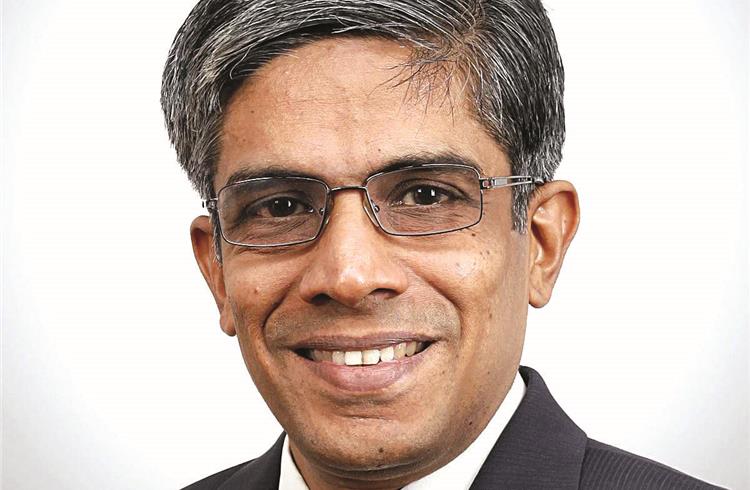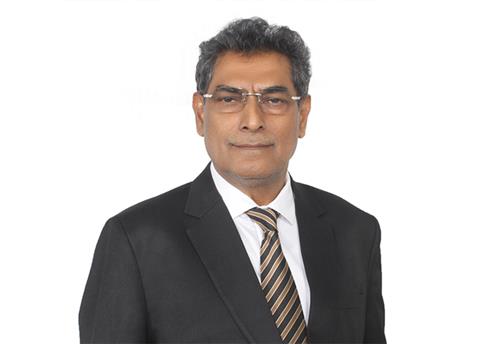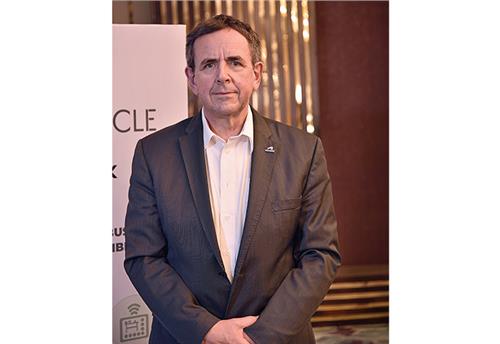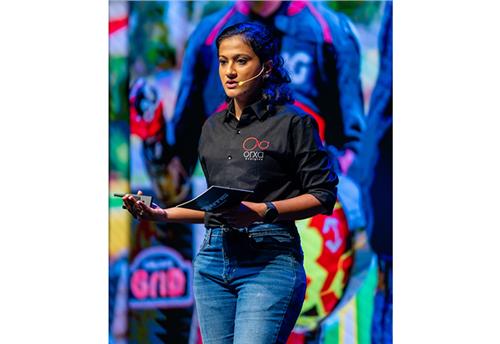'We have a user-oriented M-Tech programme for the auto sector.'
Dr Bhaskar Ramamurthi, director, IIT Madras, on the institution’s new Combustion Research Centre, its research areas, IP issues and industry-academia partnerships. An interview by Brian de Souza.
Dr Bhaskar Ramamurthi, director, IIT Madras, on the institution’s new Combustion Research Centre, its research areas, IP issues and industry-academia partnerships. An interview by Brian de Souza.
IIT Madras is setting up a Combustion Research Centre. What are the aims of the centre and when is it slated to begin operations?
Considering the twin challenges of energy security and growing environmental concerns, both of which require intensified R&D in combustion, the government of India and the Department of Science and Technology have set up The National Centre for Combustion R&D (NCCRD) at IIT Madras and IISc, Bangalore.
The Centre focuses on three main application areas – automotive combustion, thermal power, and aerospace propulsion besides niche areas such as fire research and microgravity combustion. We expect the NCCRD to begin full-fledged operations in the latter part of this year.
How will this Centre work with the automotive sector and what kind of projects would it pursue?
The Centre is working with most of the automotive majors in the country. Given that Chennai is a major automotive hub, there is good rapport that the IC engines faculty at NCCRD already enjoys with most of the leading automotive technologists.
Early on, the NCCRD has embarked upon research on novel concepts in gasoline direct injection for adaptation to Indian road and urban traffic conditions. It has assembled an industry consortium of nine Indian OEM and ancillary manufacturers to guide these efforts. The NCCRD has set up a fully optical engine for laser diagnostics in collaboration with a leading auto manufacturer. A user-oriented programme at the M. Tech level has been developed for the automotive industry. Some potential areas of research could be in the area of improving fuel efficiency of both petrol and diesel engines for the auto sector.
What kind of eco-friendly initiatives would you like to see undertaken at the Centre?
IIT Madras has had a good run with the development of bio-diesels for some time now. The Indo-German Centre for Sustainability (IGCS) has supported some projects, exchange visits, and international workshops for technical exchanges. Similarly, we have a good experience base with biogas and hydrogen engine testing as well.
At the NCCRD, there are two aspects to eco-friendly initiatives: one, a full-fledged fuel characterisation laboratory is being set up and is involved in developing and characterising several bio-fuels; the other, of course, is researching engine performance with alternative greener fuel options.
New chemistry is being unraveled in the kinetics of bio-fuels with fast pyrolysis experiments that are uniquely being pursued at NCCRD. The Centre is also equipped for comprehensive assessment of thermo-physical properties of emerging fuels. Work on dual-fuel i.e., liquid/gas combinations, using non-standard gases such as biogas, syngas and producer gas is keenly pursued. Ultra-small engines of such operability that could be combined with rooftop solar using smart local grids is a specific development in this direction where green renewable fuels is an imperative. In-line gas sensors for active combustion control based on variability in calorific value and methane number of non-standard gases has also been initiated at the NCCRD for power generation applications based on reciprocating engines.
On the emissions side, an optimal combination of in-cylinder and after-treatment approaches is sought by means of real-time optical diagnostics of in-cylinder processes and the after-treatment processes as well, for important engine operational configurations.
Intellectual property costs are an issue that industry has to grapple with. How best do you think we can go about this?
My point in my speech at the recent Auto R&D conference in Chennai was about the critical need to plan, create and utilise commercially-relevant intellectual property (IP) in light of increasing competitiveness globally.
An effective way to do this is to have strategic partnership between companies and academic institutions like the IITs. There are opportunities for collaboration at an industry level wherein R&D costs are shared, in addition to creation of company-specific creation of IP on a case-to-case basis.
The Industrial Consultancy and Sponsored Research Centre at IIT Madras has expertise in both these approaches. We believe that technology development in a cost- effective manner can result through a strategic participation of companies with institutions of higher learning like the IITs.
Do you believe that eco-friendly auto projects can benefit from an academia interface and, if so, in what ways?
Eco-friendly automotive projects are fertile ground for academia interface on many counts. First, new fuels require extensive testing for various performance-related properties and functions, something that can be done more comprehensively in a research centre like the NCCRD.
Second, many new fuels are initially available only in small quantities that are not suitable for use in the industry straight away and therefore require to be studied for use in combination with other fuels, which requires considerable insight into their combustion characteristics.
Finally, the ingenuity of research in an academic setting involving young minds is imperative for developing frontier technologies in an emerging area such as eco-friendly combustion. At academia passion often meets excellence.
How do you intend hiring the right talent for this Combustion Research Centre?
Fortunately, combustion has been historically an area of strength at IIT Madras which is why we were chosen to set up the NCCRD in the first place.
When the NCCRD was proposed, IIT Madras had about 23 faculty members across four departments involved with the centre. In the last few years, the advent of the NCCRD has already attracted new faculty from across the world and the current number of faculty participating with NCCRD is 32 from six departments.
This is already the largest grouping of combustion researchers in academia anywhere in the world; it is likely to increase by a few more in the coming years. There is tremendous interest in NCCRD from different institutions globally, both academia and industry. This is natural because the NCCRD is likely to be one of the world’s largest combustion research centres in academia when fully operational.
Our institute has persevered to build specific relationships with, among others, Purdue and PennState Universities in the US, which are strong in combustion, apart from a few other areas of mutual interest. There is perceptible enthusiasm for more active collaboration with Cambridge as well.
Besides these, there is active participation from Georgia Tech, MIT, Imperial College London, University of Connecticut, University of Queensland (Australia) as well as some German and French research institutions.
(With inputs from Prof. Satyanarayanan Chakravarthy, lead faculty at NCCRD, and M S Srinivasan, senior industry advisor )
RELATED ARTICLES
BRANDED CONTENT: 'We aspire to be among the leading sensors and electro-mechanical products manufacturer'
P. Parthasarathy, Founder & Managing Director, Rotary Electronics Pvt Ltd shares the company's commitment and vision to ...
‘Big opportunity for startups lies in products in India’: Detlev Reicheneder
As electrification levels the playing field, the focus on tech and R&D to bring innovative products is the mantra for st...
'I hope my journey makes people say — I can do this too'
Ranjita Ravi, Co-founder of Orxa Energies — the maker of Mantis e-bikes — shares the challenges of building a startup an...





 08 Apr 2015
08 Apr 2015
 4511 Views
4511 Views





 Autocar Pro News Desk
Autocar Pro News Desk




